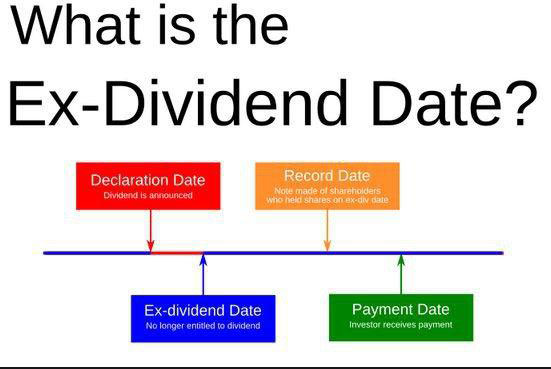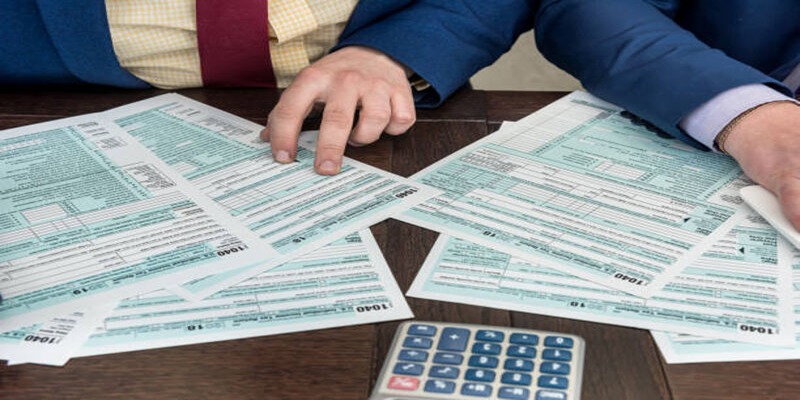The ex-dividend date is a reference to the date at which dividends may be received. Dividends aren't paid by all firms. Anyone who buys a company's shares before the ex-dividend date and keeps them until the market opens on that day will get the dividend. This post will explain to you what is ex-dividend.
What Does It Mean When a Stock Is "Ex-Dividend"?
An ex-dividend stock is one that does not include the value of the upcoming dividend. The ex-dividend date, or "ex-date," is the day when the value of a stock's next dividend payment is taken out of its price. An investor who buys shares on or after the ex-dividend date will not be entitled for the dividend. Dividends are paid to shareholders who held the stock on the day before it became ex-dividend.
The Dividend Payment Date
It is the day on which investors may expect to see their money—often in the form of a brokerage check—appear. In certain circumstances, such as stock splits, stock dividends, and other special payouts, these requirements may not apply. This means that the ex-date may be postponed if the dividend is more than 25% of the stock's value.
It is common for excellent companies to have a lengthy history of increasing dividends at a pace much greater than inflation over several decades. Because of its robust economic engine, which typically enjoys excellent returns on capital, it is capable of doing so. If you own the stock for an extended period of time and the dividend growth rate is high enough, you will eventually make a profit greater than the initial investment. "Blue-chip stocks" refer to companies having the finest dividend history.
How the Ex-Dividend Date Works

A company's ex-dividend date is set when it declares a dividend payment. Owners who have put their money into the firm might be rewarded with dividends when they record a profit for the time (typically a quarter). The board of directors votes to distribute a portion of the company's earnings as a cash dividend. Once the company's estimated debt service commitments and future development plans have been taken into consideration, the board of directors determines how much cash it can afford to pay out in dividends. When the board discusses the dividend, there are four particular days set aside.
Example of Ex-Dividend
On January 2, 2020, Walmart (WMT) paid a dividend of $0.53 per share. After the ex-date of December 5, 2019, Walmart stockholders received a payout. Previously, on February 19, 2019, the firm announced a dividend, with a record date of December 6, 2019. The cash reward was only available to Walmart stockholders who acquired their shares before the ex-date.
Other Considerations
A stock's decline in value is often smaller than the dividend payment. Because stock values fluctuate often, it may be difficult to discern the variation produced by modest dividends. Larger dividend payments have the potential to have a more obvious impact on stock prices. If a firm issues a dividend using stock rather than cash, or if the cash dividend represents 25 percent or more of the stock's value, the ex-dividend date requirements alter somewhat. There are a few things to keep in mind when determining the ex-dividend date for stock or substantial cash dividend:
What It Means for Individual Investors

Prior to the ex-dividend date of a stock, mutual fund, or another financial asset, you are entitled to the dividend. This is because your information will be added to the books prior to the record date. The money will be sent to you as soon as you take over the firm.
The dividend payment will not be made to you if you purchase a stock, mutual fund, or even another financial asset after the ex-dividend date. Despite the fact that they sold the asset to you, the previous owner will still get the planned dividend. To account for the value transfer that happens on the ex-dividend date, the stated price of a stock or other instrument is often reduced lower by the amount of the anticipated future dividend. As a result, arbitragers will have a tough or impossible time profiting from the timing.
Conclusion
On the ex-dividend date, an investor must hold on to stock to get its forthcoming dividend. To collect a dividend, an investor must acquire shares before the ex-dividend date. Even if the seller does not hold the stock anymore, they will still get the dividend if they sell it on or after the date that determines whether or not they are entitled to the payment. Every company has an ex-dividend date that is one business day ahead of the record date.







